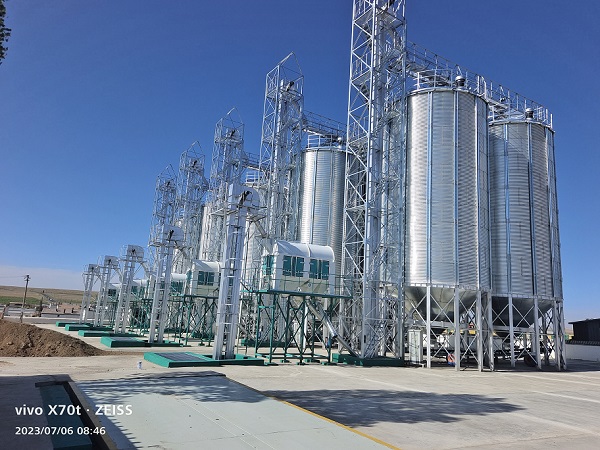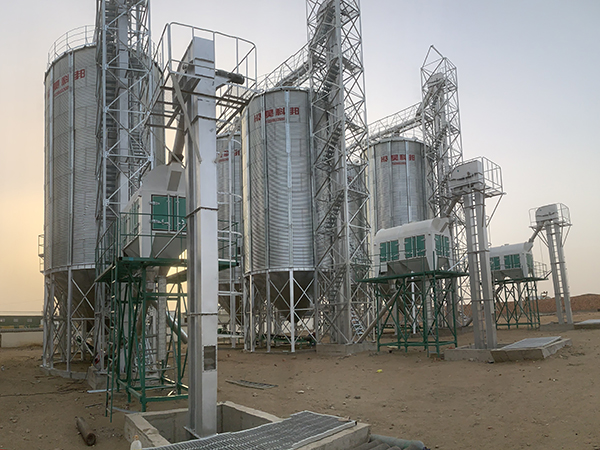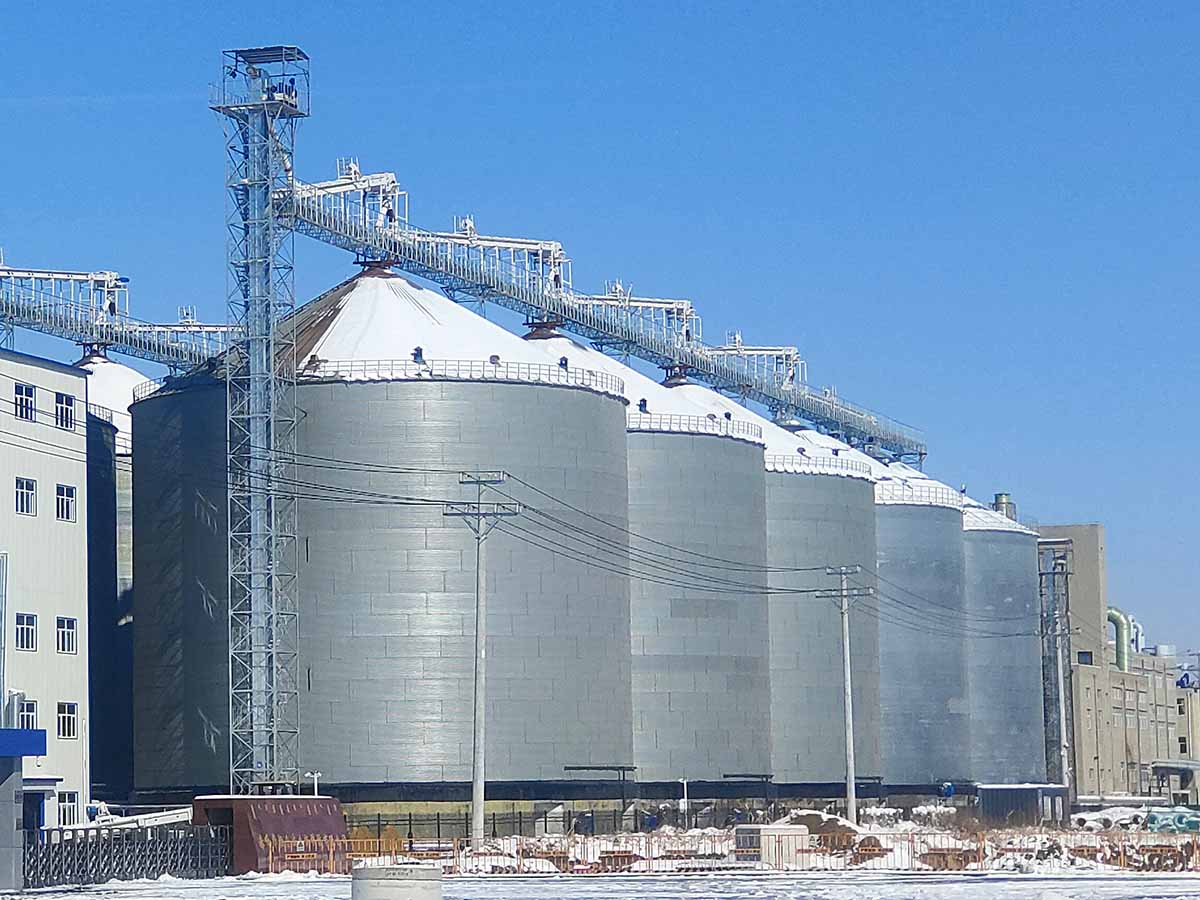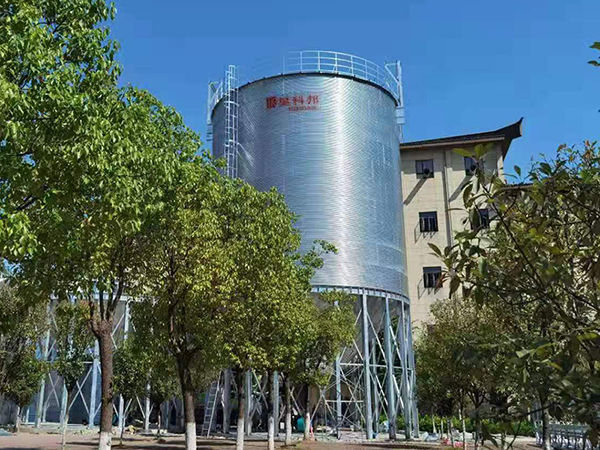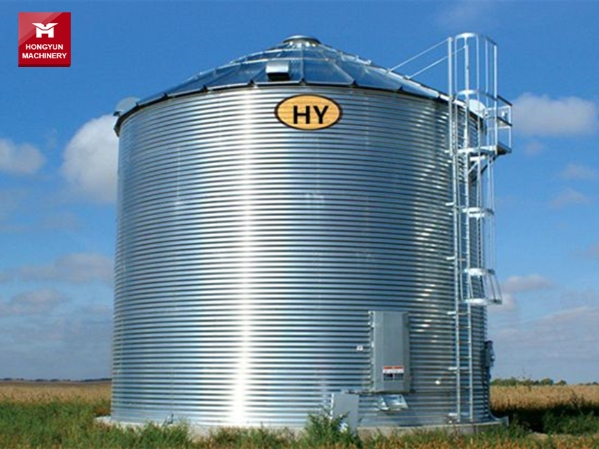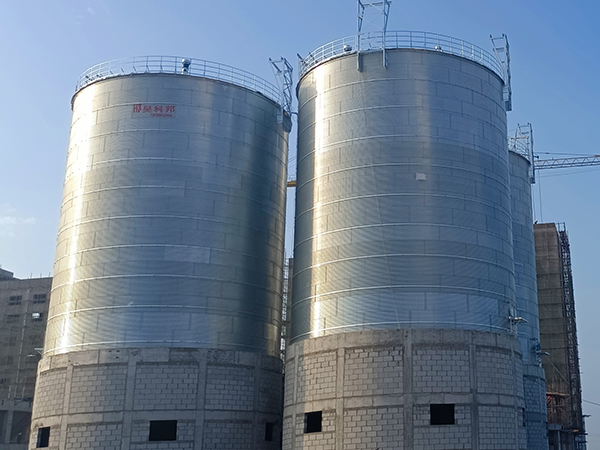Animal feed silo
Animal feed silo is a storage facility designed for storing and managing animal feed. It typically consists of a cylindrical structure with a certain capacity to accommodate feed
Animal feed silo Introduction
Animal feed silo is a storage facility designed for storing and managing animal feed. It typically consists of a cylindrical structure with a certain capacity to accommodate feed for animals such as livestock, poultry, pets, and more. The design of an animal feed silo aims to keep the feed fresh and dry, preventing it from getting damp, moldy, or contaminated. These silos often feature good sealing and ventilation systems to ensure the quality and nutritional value of the feed. Animal feed silos find application in various settings including farms, ranches, pet stores, and other animal care facilities, serving as crucial infrastructure for effective management and supply of animal feed.
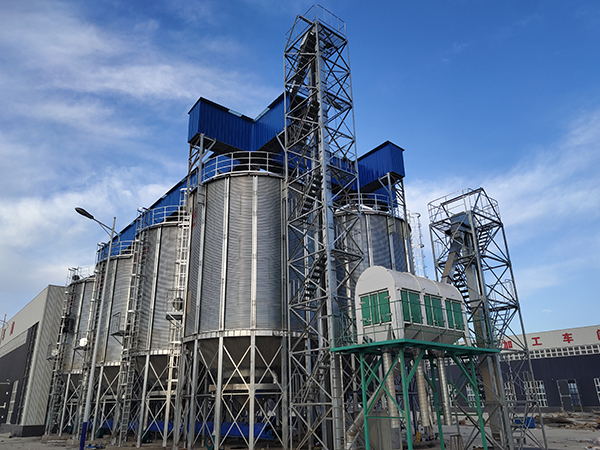
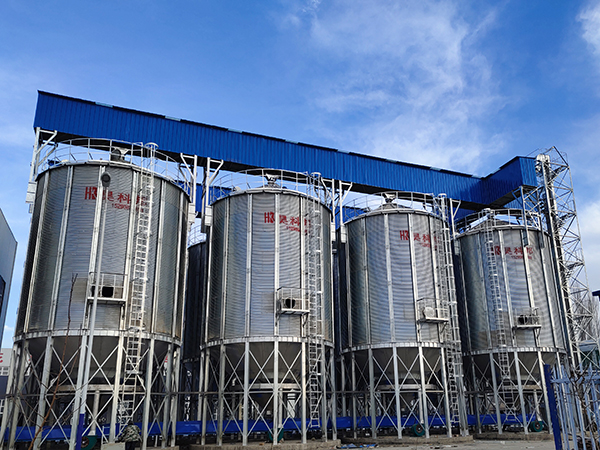
Characteristics of animal feed silo
Diverse Capacity Options
Silos offer a range of capacities to cater to the needs of farms and feed mills of various sizes, from small to large.
Durable Construction Materials
Typically made from corrosion-resistant materials such as hot-dip galvanized steel, stainless steel, or fiberglass, ensuring the safety and reliability of long-term feed storage.
Structural Stability
Designed with a stable structure that can withstand harsh weather conditions like strong winds and heavy snow, ensuring the safety of the feed stored.
Ease of Monitoring and Management
Equipped with monitoring systems, including temperature and humidity sensors and level meters, for real-time silo status monitoring.
Economical and Practical
With a simple structure, low cost, large capacity, and ease of maintenance, silos provide an economical feed storage solution.
Compatibility with Automated Feeding Systems
Can be integrated with automated feeding systems to improve farming efficiency and reduce manual labor.
Corrosion Protection Treatment
The surface may undergo special treatments, such as hot-dip galvanizing, to enhance its corrosion resistance.
Variety of Discharge Methods
Including fluidized unloading, multi-hole unloading, bottom sweeping machine unloading, or manual clearing, ensuring efficient discharge.
Sealing Performance
Good sealing performance protects the feed from external factors like rainwater and dust.
Easy Installation
With a modular design, silos facilitate rapid installation and deployment, reducing construction time and costs.
Environmental Adaptability
Designed to consider different climatic conditions, with features like UV resistance and anti-static properties, suitable for various environments.
Ease of Cleaning and Maintenance
Due to their simple structure and often self-cleaning features, silos are easy to regularly clean and maintain.


Structure of animal feed silo
Silo Body
This is the core part of the silo, designed to accommodate and store animal feed. It is typically made from corrosion-resistant materials such as hot-dip galvanized steel, stainless steel, or fiberglass.
Top Structure
This includes the cover or cap at the top of the silo, designed to prevent rainwater and foreign objects from entering the interior of the silo.
Discharge System
Located at the bottom of the silo, it can be automated, such as a screw conveyor, vibratory feeder, or pneumatic conveying system, facilitating the extraction and distribution of feed.
Conical Bottom
The conical design aids in the flow of feed, reduces residue, and facilitates cleaning and maintenance.
Legs or Supports
The silo is usually supported by metal legs to ensure structural stability and allow for feed storage above the ground level.
Feed Inlet
Located at the top or side of the silo, it is used for adding feed into the silo.
Ventilation System
May include vents or ventilation columns to ensure air circulation within the silo, reducing humidity and the growth of mold.
Monitoring Equipment
Such as temperature sensors, humidity sensors, and level meters, used to monitor the internal environment of the silo and the feed inventory.
Safety Facilities
Like ladders, platforms, and protective railings, ensure the safety of maintenance personnel.
Corrosion Protection
The surface of the silo may undergo special treatment, such as hot-dip galvanizing, to enhance its corrosion resistance.
Seals and Edges
Seals may be installed at the joints and edges of the silo to prevent the ingress of rainwater.
Additional Accessories
Depending on specific needs, the silo may also be equipped with additional accessories such as breather valves, level indicators, and weighing systems.
Control System
May include a control panel or computer system for managing the feed intake, discharge, and monitoring of the silo.
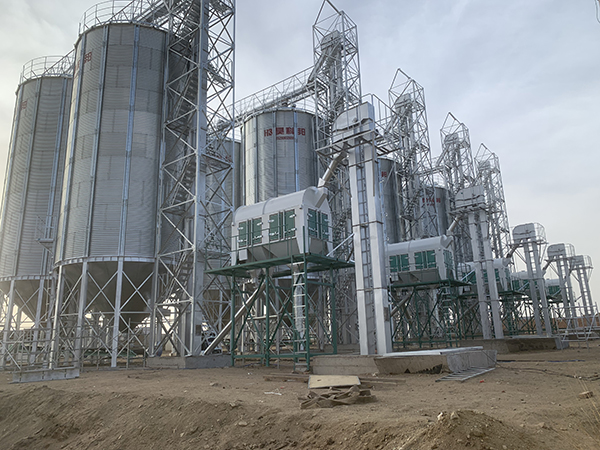
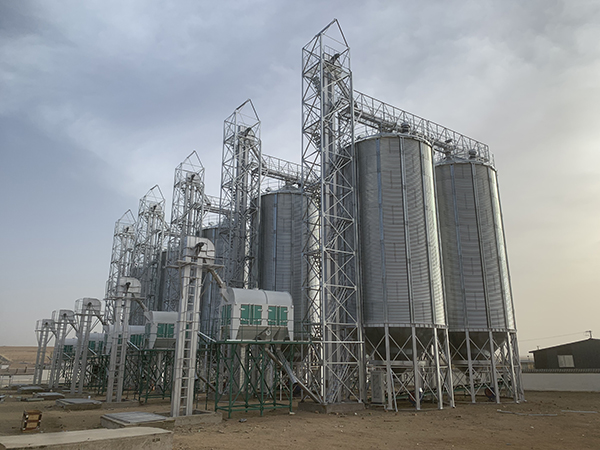
Advantages of animal feed silo
Assurance of feed quality
Silo design facilitates maintaining the freshness and quality of feed, effectively preventing it from becoming damp, moldy, or contaminated, ensuring the nutritional value and safety of the feed.
Convenient management
The simple design of silos makes them easy to operate and manage. Caregivers can easily store, access, and manage animal feed, thereby increasing work efficiency.
High space utilization
Animal feed silos are typically vertical structures, allowing for the storage of a large quantity of feed in limited space, saving area and enhancing space utilization.
Cost savings
Effective management and storage of feed reduce waste and improve feed utilization, resulting in cost savings in animal care.
Flexibility and strong customization
Depending on the specific needs and requirements of the farming site, animal feed silos can be customized in different sizes and designs to meet specific farming needs and demands.
Stable feed supply
Silos can store a large quantity of feed, ensuring a stable supply of feed that is less susceptible to interruptions due to external environmental factors.
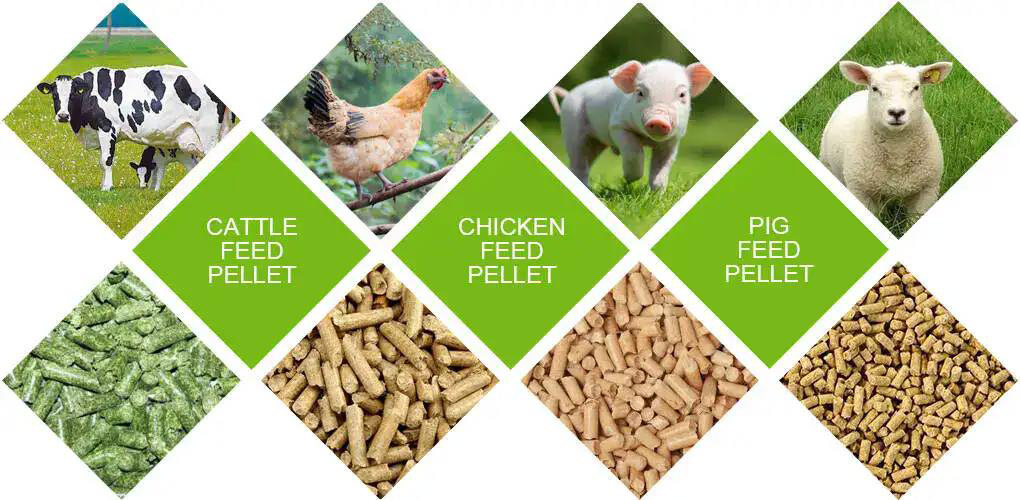
Animal feed silo applications
Farms
Animal feed silos are commonly used on farms for storing and managing feed for livestock such as cattle, pigs, and poultry.
Ranches
Ranches often utilize animal feed silos to store feed for grazing animals like cattle, sheep, and horses.
Poultry farms
In poultry farms, feed silos are employed to store feed for chickens, turkeys, ducks, and other poultry species.
Pet food storage
Animal feed silo can also be used in pet food storage facilities, such as pet stores or animal shelters, to store bulk quantities of pet food for dogs, cats, birds, and other companion animals.
Zoos
Zoos may utilize animal feed silos to store feed for various animals housed within their facilities, including mammals, birds, reptiles, and fish.
Wildlife rehabilitation centers
Facilities dedicated to the care and rehabilitation of injured or orphaned wildlife may use animal feed silos to store specialized diets for different species being rehabilitated.
Animal feed silo technical parameters
Scientifically speaking, the Silo capacity should be measured with volume (m3). Even in the same grain Silo, the storage tons will be different for different grains with different densities. The following table is calculated based on a Silo density of 0.75kg/m3, and surely HKB customizes Silo systems unique for you.
| Most Popular Hopper Bottom Steel Silo Technical Specifications | ||||||||
| Capacity | 50Ton | 100Ton | 150Ton | 200Ton | 300Ton | 500Ton | 1000Ton | 1500Ton |
| Model | TCZK
03605 |
TCZK
04507 |
TCZK
05507 |
TCZK
06406 |
TCZK
07307 |
TCZK
07313 |
TCZK
11010 |
TCZK
12811 |
| Diameter(m) | 3.667 | 4.584 | 5.500 | 6.417 | 7.334 | 7.334 | 11.000 | 12.834 |
| Total Height(m) | 9.56 | 12.53 | 13.25 | 12.85 | 14.70 | 21.42 | 20.95 | 23.51 |
| Volume(m³)
Density:0.75ton/m³ |
69 | 150 | 222 | 273 | 415 | 699 | 1346 | 2039 |
| Most Popular Flat Bottom Steel Silo Technical Specifications | ||||||||
| Capacity | 1000Ton | 1500Ton | 2000Ton | 2500Ton | 3000Ton | 5000Ton | 8000Ton | 10000Ton |
| Model | TCK
10014 |
TCK
11915 |
TCK
13715 |
TCK
15514 |
TCK
15518 |
TCK
18321 |
TCK
24718 |
TCK
25621 |
| Diameter(m) | 10.084 | 11.918 | 13.750 | 15.584 | 15.584 | 18.334 | 24.751 | 25.668 |
| Total Height(m) | 18.69 | 20.34 | 20.87 | 20.30 | 24.78 | 28.60 | 26.99 | 30.60 |
| Volume(m³)
Density: 0.75ton/m³ |
1335 | 2009 | 2701 | 2467 | 4145 | 6693 | 10879 | 13484 |

